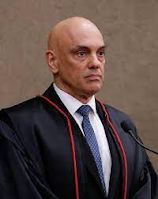Is that a crime? A pending case involving a Nepalese major general may shed light on the matter. For details, consider this article from myRepública. Excerpt:
If the information provided by the military headquarters is taken into consideration, then the investigation conducted against Major General [Prem] Shahi and two other officers and the trial process conducted in the military court appear to be illegal according to the Army Act, 2006.
Section 7 of the Army Act has provisions relating to offences and from Sections 38 to 65 of the Act mention 27 offences. But none of the above sections has any provisions related to offense under the title of 'not maintaining financial discipline'. Offenses relating to 'discipline' and 'corruption' are under separate headings. Similarly, in section 66, murder and rape are included as crimes under other laws "unless it is between soldiers".
Likewise, Section 52 has legal provisions for disciplinary and conduct-related offenses. Even this section of the military Act has no provisions related to financial discipline. The provisions related to corruption are included in Article 62. In this section, it is mentioned that there are special provisions related to crimes of corruption, theft, torture and disappearance.
Lack of financial discipline is associated with corruption. But the Court of Inquiry does not have the authority to investigate and adjudicate corruption offenses under Section 62. That power has been given to a three-member special committee under sub-section (2) of the same section. The special committee chaired by the Deputy Attorney General appointed by the Government of Nepal, the Chief of the Legal Branch of the Ministry of Defense and the representative of at least one official of the Judge Advocate General's Department of the Nepalese Army has the right to look after this issue.
According to the Act, the hearing and settlement of corruption-related offense cases is done not by the military court as per section 67, but by the special military court as per section 119. Sub-section 1 of Section 119 has a provision of setting up a military special court for such cases.






































